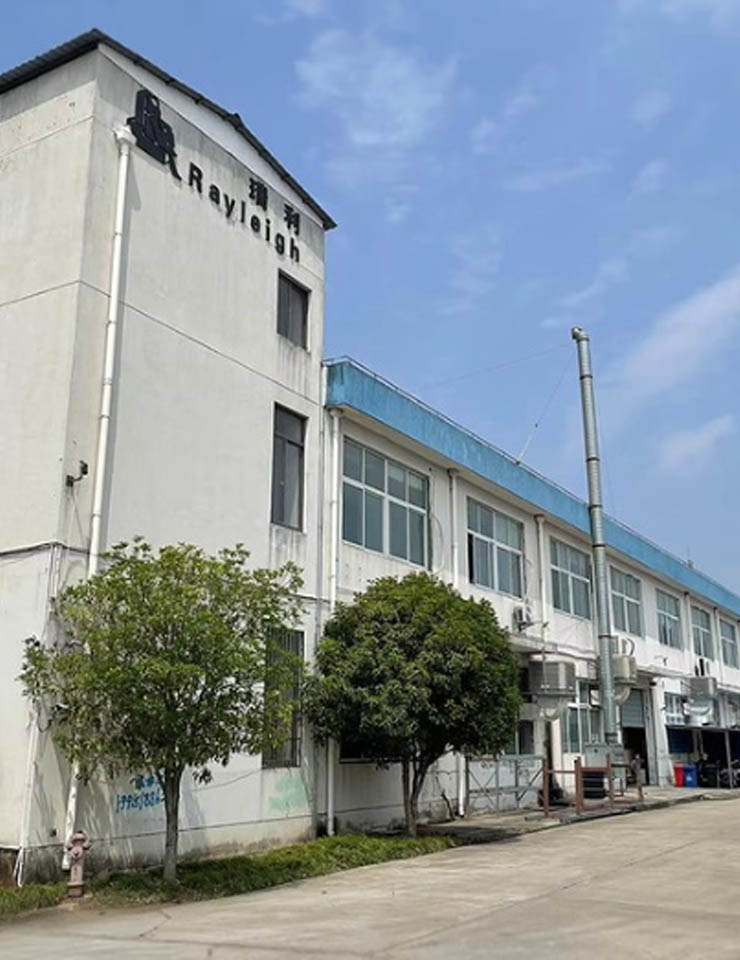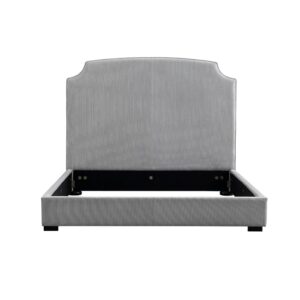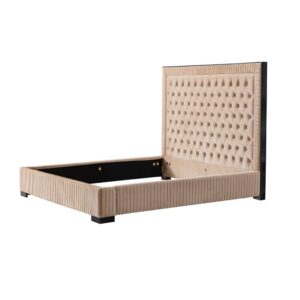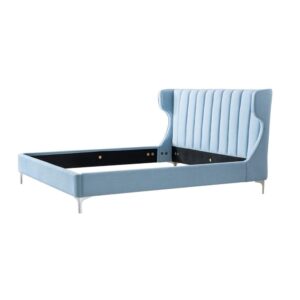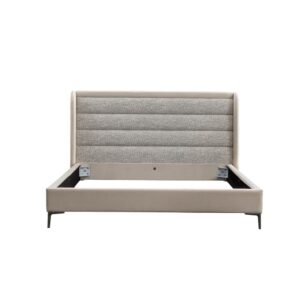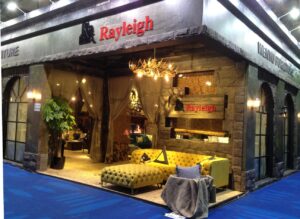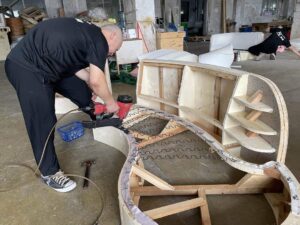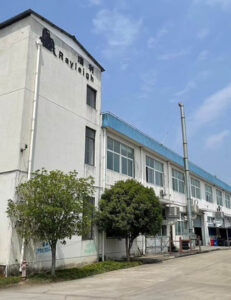Despite its many advantages and strengths, the sofa factory as a sofa agent has difficulties and challenges. In this highly competitive, rapidly changing and demanding market environment, sofa factories must face all kinds of injuries or waiver associations from outside or inside. These influences or associations may adversely affect the survival or development of sofa factories and the partnership and interests of furniture agents and resellers. Thus, how to view these challenges is an essential dilemma for sofa factories to consider.
Sofa factories need to face the following trials and tribulations:
- Market competition. Competition in the market is defined as multiple cooperating or substituting products or service providers and their various activities to compete for market share or profitability. Market competition is the most intuitive and everyday grind for sofa factories, as it affects their sales, price, branding and reputation. Industry competition is ancient, such as sofa factories, furniture dealers in other sectors, and many sofa suppliers in other channels. There are also some methods of industry competition, such as price wars, marketing wars, brand wars, innovation wars and so on.
- Customer demand. Customer demand refers to the user’s expectation or requirement of the product or service, an important factor that jeopardizes the consumer’s purchasing behaviour and satisfaction rate. Customer demand is the most essential honing of the sofa factory, as it determines whether it can satisfy and win customers. Customer demand changes and improves at any time, such as with the improvement of living standards, aesthetics and personalized demand, the user’s requirement for sofa products and services will become higher, higher and more accurate.
- National Standards. National standards refer to some standards or norms formulated inside and outside the industry, which are set to ensure the health and order of the field. National standards are a challenge for sofas factories to follow and adapt to because they affect their business activities and may bring some legal or ethical responsibilities and risks. There are many national standards, such as national standards, national standards, national standards for product quality, safety, environmental protection and other national standards, as well as their intellectual property rights such as product design, production, sales, after-sales patents, patents, copyrights and other intellectual property rights.
- Environmental Issues. Environmental issues are some problems or dilemmas related to the ecological environment due to human activities’ destruction or pollution of natural resources and ecosystems. The critical climate is a challenge that sofa factories should consider and deal with because it will affect the supply of resources and cost control of sofa factories and may bring some pressure and adverse effects on social responsibility and public opinion. There are many environmental issues such as sustainability, legality and compliance of raw materials such as wood, leather, fabrics, etc., as well as the treatment, recycling and reduction of their emissions such as wastes, wastewater and exhaust gases.
The above level reflects the challenges that sofa factories must face, which may bring some confusion and hardship to sofa factories and may also bring some inconvenience and loss to furniture dealers and resellers. However, these challenges may also give furniture dealers and resellers some opportunities to drive sofa factories and some advantages and profits. Thus, how to view these challenges is an essential dilemma for sofa factories to consider.
That way, how can sofa factories look at these challenges, turn the crisis into opportunities, seize them, and enhance their competitiveness? Here are some proposals:
- Don’t worry too much about market competition and ignore market opportunities. Market competition is inevitable but also beneficial. Market competition can promote sofa factories to improve product quality, service level, corporate image and other aspects to enhance market share and profitability. Market competition can also inspire sofa factories to find and develop new market potential and target customers, thus expanding their own market size and influence.
- Make sure to overhear consumer demand and pay attention to customer value. Customer demand is essential, yet limited. Customer demand can guide sofa factories to produce and provide products and services that meet customers’ expectations and requirements, increasing customer satisfaction and satisfaction rates. However, customer demand can limit a sofa factory’s ability to innovate and create value. Sofa factories should meet consumer demand and exceed customer demand, give customers more weight, and thus enhance customer recognition and recommendation.
- Refrain from resisting national standards and ignoring field cooperation. National measures are necessary yet favourable. National standards can ensure that the products and services of sofa factories align with our country’s legal and social moral needs, thus reducing or lowering some legal or ethical liabilities and risks. National standards can also promote cooperation and communication between sofas factories and other related parties in the industry to obtain or share some resources, information, technology, etc. Sofa factories should follow the national standards and participate in developing and improving the industry standards to enhance their status and reputation in the industry.
Sofa factories should pay attention to environmental issues and vigorously carry out environmental protection and improvement, assume social responsibility, enhance social reputation and improve social influence. For example, sofa factories can reduce the consumption and destruction of natural resources and ecosystems, reduce pollution and pressure on the environment, improve environmental dedication and restoration based on the use of materials that can be regenerated or biodegradable, pick cleanup or energy-saving technologies, and implement green or recycling management. Sofa factories can also demonstrate their environmental philosophy and actions by participating in or being available for some ecological projects, activities, organizations, etc., to win the recognition and respect of customers and society.
In the previous article, we introduced the advantages of sofa factories in terms of customization, variety, cost and after-sales service and how they can provide furniture dealers and resellers with one-stop, diversified, cost-efficient and high-quality sofa products and services. It also discusses the challenges that sofa factories must face, including market competition, customer demand, national standards, environmental issues, etc., and how they can look at these challenges, turn them into dilemmas, and enhance their competitiveness. In this article, we will explore the opportunities that sofa factories can utilize, including market demand, consumer preferences, industry trends, technological advances, etc., and how to create value and enhance impact through this opportunity.
Opportunity: Opportunities that sofa factories can capitalize on
Opportunities are structural or internal factors that benefit or drive the survival or growth of a sofa factory and are caused by shifts in market conditions or customer needs. Opportunities also affect the cooperative associations and benefits between furniture dealers and resellers because they can help sofa factories provide better products and services, thus increasing furniture dealers’ and resellers’ marketing and profitability. Therefore, how to utilize opportunities is an essential challenge for sofa factories.
Sofa factories can utilize the following:
- Market demand. Market demand refers to a product or service’s overall or subsidiary direction and characteristics. It is the main factor that jeopardizes the production and sales of a sofa factory. Market demand changes and grows at any time; for example, with the improvement of population, earnings, and consumption upgrading, the market requirements and quality of sofas can also be improved and increased. Relying on the change and growth of market demand, sofa factories can enhance their marketing and market share by seizing the market, satisfying customers and improving competitiveness. For example, sofa factories can understand the requirements and characteristics of sofas of different geographic regions, levels, and types of users by studying the market, processing data, predicting trends, and then formulating moderate market strategies and marketing programs based on different market positioning and target customers, and give reasonable products and services. Sofa factories can also participate in or organize exhibitions, activities, promotions and other methods to enhance their brand awareness and influence, attract more potential customers and partners, and expand their market capacity and coverage.
- Consumer Preference. Consumer preference refers to the customer’s choice or tendency towards a product or service, an essential factor jeopardizing the consumer’s purchasing behaviour and satisfaction rate. Consumer preference changes and diversifies at any time; for example, with the change in lifestyle, aesthetic upgrading, and improvement of personalized demand, users’ preferences for sofa products and services will become more diversified and segmented. Relying on the change and diversification of consumer preferences, sofa factories can enhance the value of their products and services according to meeting customers, exceeding customers, and creating customers. For example, sofa factories can provide products and services that meet or exceed consumers’ expectations by comparing customer preferences, regulations, and inconveniences, thereby enhancing customer satisfaction and gratification rates. Sofa factories can also give products and services that exceed or create consumer needs by innovating products, services, and models, enhancing consumer recognition and recommendation.
- Industry Trends. Industry trend refers to some development prospect or change direction inside and outside the industry, which is the main factor jeopardizing the production and operation of sofa factories. With the progress of technology, policy adjustments and social changes, some standards or norms, needs or, preferences, opportunities or waixie inside and outside the industry will also change. Relying on the evolution and updating of industry trends, sofa factories can improve their market and service competitiveness by following trends, promoting movements and creating trends. For example, sofa factories can follow industry dynamics, dissect industry data, predict industry direction, grasp changing trends inside and outside the industry, and subsequently adjust their commodity solutions and service countermeasures to integrate or promote market demand and consumer preferences. Sofa factories can also create new product features and service characteristics by introducing new technologies, processes, designs, etc., and then create their own product and service advantages.
Technological innovation. Technological innovation refers to some discoveries or applications in science and technology, which is the main factor jeopardising the production and operation of sofa factories. With the development and application of artificial intelligence, the Internet of Things, big data and other emerging technologies, the production process, transaction methods and usage of sofa products and services will also change. Relying on breakthroughs and innovations in science and technology innovation, sofa factories can improve the efficiency of product efficiency and service efficiency by introducing technology, application of technology, and innovative technology. For example, sofa factories can enhance production volume and management capacity and reduce costs and risks by introducing specialised equipment, tools and systems. Sofa factories can also use intelligent data and other technologies to improve service quality, service experience, customer interaction, and customer loyalty.
The above aspects reflect the opportunities that sofa factories can utilise, which may bring some advantages and profitability to sofa factories and some convenience and profitability to furniture dealers and resellers. However, this opportunity may also bring challenging risks to the sofa factory, competition, and pressure from furniture dealers and resellers. Thus, utilising this opportunity is an essential challenge for sofa factories to consider.
- It does not have to rely too much on the existing opportunities and ignore the new chances. Established opportunities are valuable, but they are also limited. Current opportunities can help sofa factories improve the quality of their goods and services, enhancing their markets and customers. However, existing options can also limit a sofa factory’s ability to innovate and develop. Sofa factories should utilise the existing opportunities and look for and explore new opportunities to provide good products and services to create a larger market and customers.
- Should not over-pursue the total number of opportunities and neglect the quality and effectiveness of the options. The total number of prospects is essential but also relative. The total number of possibilities can reflect the market size and coverage of the sofa factory, thus increasing its sales and profitability. However, the total number of opportunities also affects the resource allocation and management efficiency of the sofa factory, thus reducing the quality of its products and services. Sofa factories should not only pursue the number of opportunities but also pay attention to the quality and effect of the opportunities to provide high-quality, efficient products and services, thus enhancing their brand value and customer loyalty.
- Be open to taking advantage of opportunities and ignore continuous improvement and optimisation. The results of the options are pleasing, yet temporary. The viewpoint of utilising opportunities can reflect sofa factories’ market and service competitiveness, thus increasing their market share and influence. However, the results of options can also cause complacency and stagnation in sofa factories, thus losing their innovative power and development potential. Sofa factories should not only confine themselves to taking advantage of opportunities but also gradually improve and optimise their product solutions and service countermeasures to meet the market situation and the transformation of customer needs.
Conclusion Through the above analysis, it is easy to see a sofa factory as a sofa agent, compared with other channels, has apparent advantages but faces some challenges and opportunities. Sofa factories should, according to their actual situation and goals, scientific use of benefits to cope with the challenges, grasp the possibilities, and enhance their status and reputation in the industry for furniture dealers and resellers to provide better, higher, more preferential, more guaranteed, more meaningful, more famous, more competitive, more collaborative, more future, more social, more responsible, more sustainable, more ecological, more humane, more contagious, more intelligent, more satisfied, better wishes and so on.
If you are a furniture agent or reseller and are interested in a sofa agent, please do not hesitate to contact with Rayleigh Furniture! Rayleigh Furniture is professional, reliable, high-quality, innovative, environmentally friendly, obviously socially responsible, can meet the challenges, grasp the opportunities, and can give you a personalised, customised sofa factory; Rayleigh Furniture is looking forward to establishing a long-term, smooth, mutually beneficial, win-win relationship with you, to provide you with the most suitable sofa products and services, so that your customers are more satisfied with your business more successful so that your life is better!

